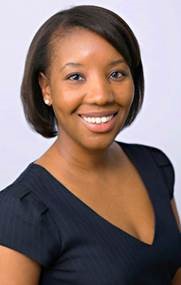Problems revealed in equity audit are lived experience for BIPOC grad and parents, who call for changes
One Black teacher during Tahbaz's academic career in Pelham
March 22, 2021
As a person of color who went through the Pelham school system, Nora Tahbaz read nothing in the district’s racial equity report that was a surprise. It was her lived experience.
Tahbaz, a Pelham Memorial High School graduate and one of the founders of Pelham United, said she supported the report’s recommendation for more diverse hiring, citing the fact that she had only ever been taught by one Black teacher in her entire academic career in Pelham. She said that providing students with authority figures who look like them gives them someone to relate to and makes the school a more emotionally safe environment.

One example Tahbaz gave was the way history was taught: “When we would have teachers teaching about Black history or slavery and just the words used, the way they described the events, would never be a way that an African American or Black person would have described, like, slavery… There’s a lack of understanding in the staff about what students’ lived experiences are.”
It is important to her that future generations “have something that I wish I had.”
In Tahbaz’s recent work with Pelham United, she said Superintendent Dr. Cheryl Champ and the district have been doing well at trying to get a more “holistic” view of the schools, but that the audit was just the first step. The district will continue to need more studies, more data and more audits with different groups, she said.
(This is the second of a two-part series on reactions to the report’s specific recommendations. Today’s story features interviews with members of groups representing alumni who are Black, indigenous and people of color (BIPOC) and parents with BIPOC children, as well as the Progressive Women of Pelham. On Thursday, part one reported on the views of Pelham Board of Education President Jessica DeDomenico and a PTA representative.)
Saying the Pelham school district lacked “a consistent commitment to fostering an equitable and racially just school environment,” the Metro Center’s report recommended a review of existing barriers to employment, the creation of “affinity spaces” for minority groups, replacing punishment with restorative justice and the Princeton Plan for organizing the four elementary schools, among a number of major steps.
Tahbaz called the Princeton Plan a viable option for Pelham to address many biases that are developed at the elementary level. As a Black student entering middle school, she said, “It was assumed that I went to Hutch.”
She said she recognized the complicated logistics of combining the elementary schools across the two villages, but that the elimination of assumptions are worth making the shift.
DeDomenico said in comments to the Pelham Examiner’s story on Thursday the Princeton Plan is “not something the board is considering at this time.”
“The district administration and cultural competence committee are reviewing the audit to determine alignment with the district’s overall goal of cultural competence and make recommendations regarding a roadmap to further the work which has been done to this point,” DeDomenico said in an email. “Once that review is complete, we will consider the CCC’s recommendations and determine how best to move forward.
The Princeton Plan, considered ten years ago, would eliminate the neighborhood elementary school system, instead populating the schools by grade. The restructuring is meant to address the difference in racial makeup of Hutchinson School (41% white) and the three other elementary schools (70% to 75% white).

Pelham United has been in consistent contact with Champ and the Pelham school district to “push from the outside,” and Tahbaz is optimistic about continued collaboration. As an external group, though, Tahbaz said that Pelham United is removed from administrative discussions, so she is hoping that the group can help facilitate community engagement by acting as an outside moderator in conversations.
The creation of affinity spaces is another priority for Tahbaz, who said that it is important that students have a place where they can feel safe in the conversations they want to have “without feeling pressure from other students or the school to not have those conversations.” She cited the recent controversy over the display of thin blue line flags in schools as an example of a situation in which there was a necessity for safe discussion spaces for students.
Ultimately, Tahbaz hopes to see community members of different backgrounds and opinions remaining in the conversation.
“Everyone’s just trying to make the schools a better place,” she said.
Debra Stern, a member of Bridges of Pelham, which is a group of Black parents advocating for children of color in Pelham schools, was unsurprised by the information published in the report. It was an “honest appraisal” of where the district stands, said Stern, who is the executive director of a Mount Vernon charter school.
Stern’s main priorities from the report are diversifying the teaching staff and examining the cultural climate in the schools to understand why and where people feel like they don’t belong. A focus on hiring, she said, should come before the creation of affinity spaces, which are, in part, meant to help retain staff.
“If you don’t have any staff to retain, what’s the point?” she said. “You can create a space, but if they don’t think that they belong, it’s not going to matter.”
Bridges of Pelham has been working with the board of education and the district’s cultural competence committee and meeting with the district on a quarterly basis since long before the audit was published, Stern said.
She emphasized the importance of utilizing restorative justice rather than punitive practices in schools. Programs like student court that require more reflection are “important for the whole community,” regardless of race, she said.
Speaking independently of Bridges of Pelham, Stern said that instead of forcing integration through the Princeton Plan, the district should focus on diversifying the population in Pelham’s existing neighborhood schools. “Rather than destroy a community that’s developed in the Hutchinson School,” the district should commit to encouraging diversity in all of the elementary schools, she said.
Janice Powers, also a member of Bridges of Pelham, moved to Pelham seven years ago for the school district, thinking it would be the best option for her daughter. When she sought out other Black students to hear about their experiences, she said, “The things that they told me broke my heart. As a parent, they made me wonder if I made the right decision.”

Of the Princeton Plan, Powers said, “I think it’s a good option, to be honest with you, and the reason I think it’s a good option is because at this point, I don’t see any real frequent or regular interaction between the four elementary schools.”
With the approach, “kids will know each other more and in better ways,” and families will be reminded that “this is one town,” said Powers.
“Why don’t we love Pelham for every single resident of Pelham?” she said. “Is it not better to be better?”
Deborah Lowery Knapp, policy director for Progressive Women of Pelham, said her main concern is to act on the issues that she said have been discussed for years, rather than just continuing to discuss what is wrong in the district. “I really don’t think Pelham is alone in having (systemic racism) exist in the schools,” she said. “What differentiates us is how we respond to it.”
Paula Wood, executive director of PWP, said that as a Hutchinson parent, it was difficult to read about how Hutch students were perceived by their peers upon entering middle school.
According to Wood, PWP has also been in discussions with Champ about the schools’ curriculum and past incidents of racism and anti-Semitism. “Dr. Champ and the district have been slowly but very consciously reaching out to different groups in the community” to continue these conversations, she said.
Both Knapp and Wood are in support of the implementation of the Princeton Plan. However, Knapp said more needs to be done to address segregation in the community than just integrating the elementary schools.
“The way our community is built is a relic of redlining,” said Wood. Like Knapp, she does not want the town to view the plan as a “silver bullet.”
“Just changing the way our schools are laid out is not going to solve all of this. It’s part of the entire process.”
As Tahbaz of Pelham United put it, “If we keep pretending that the schools are perfect, they will remain imperfect.”